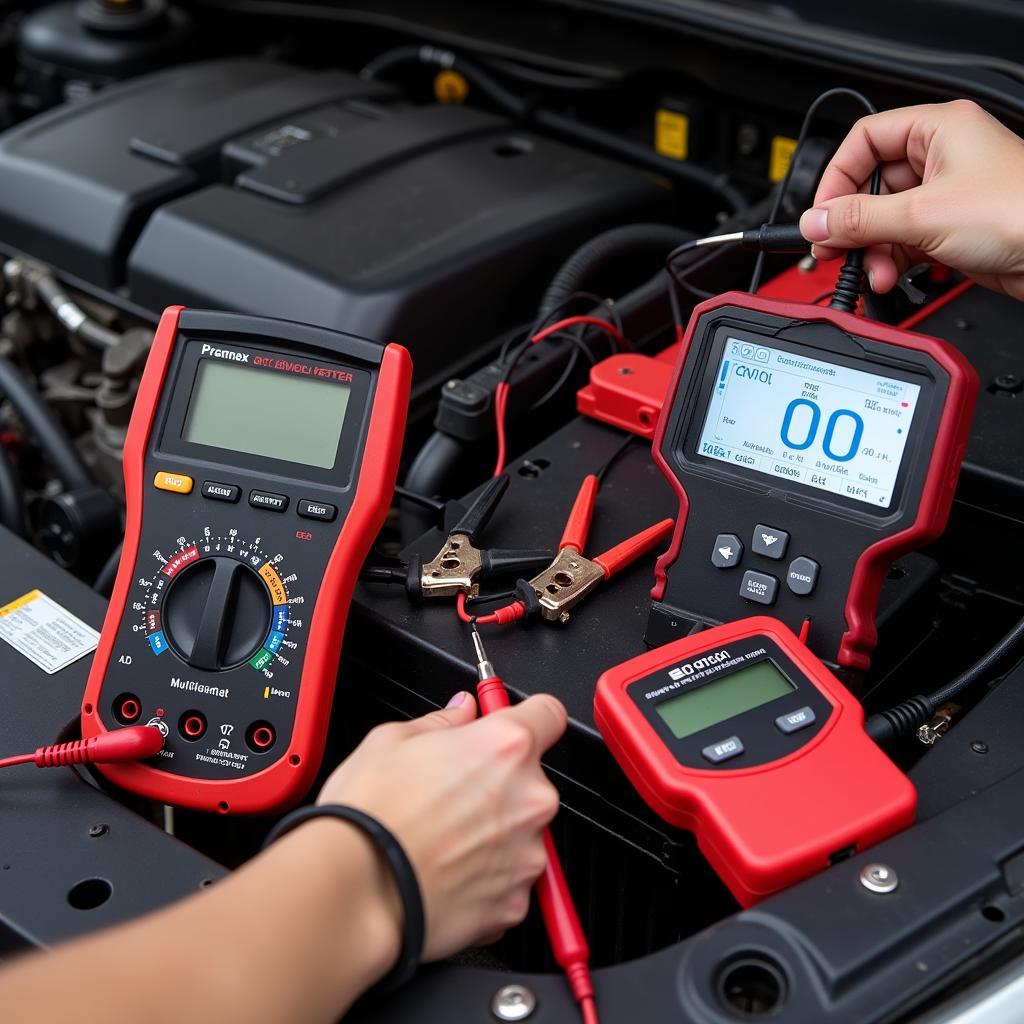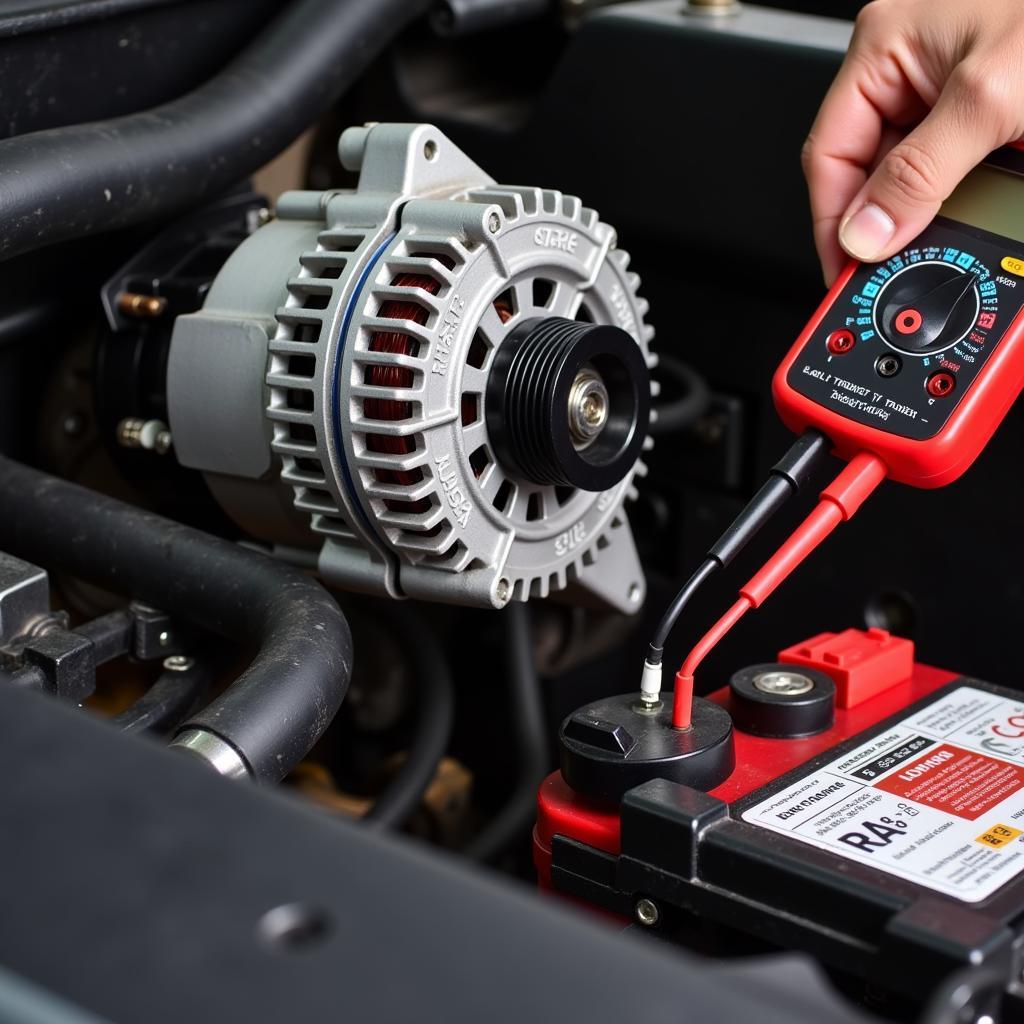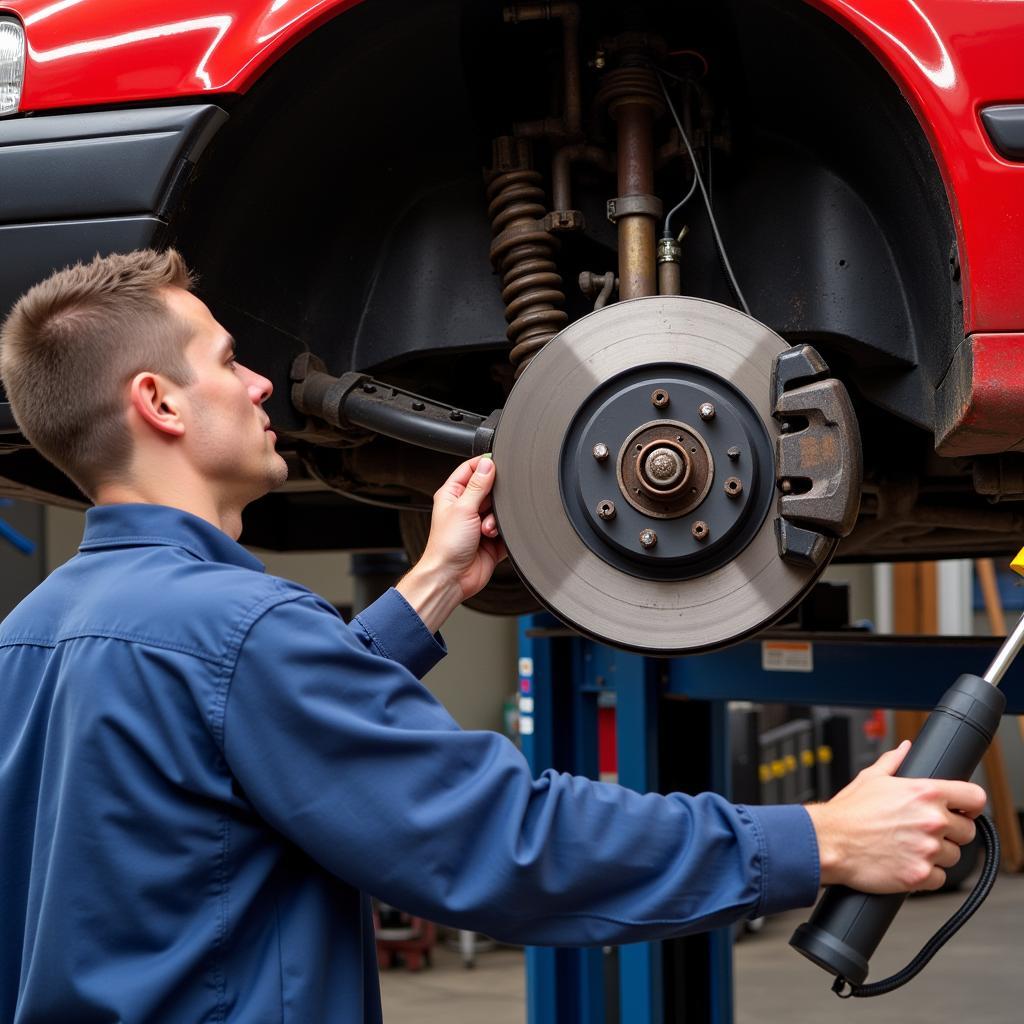If your car battery dies quickly, you’re not alone. This frustrating issue can stem from a variety of problems, ranging from a simple parasitic drain to a more serious alternator malfunction. Understanding the causes and solutions can save you time, money, and the headache of being stranded. Let’s dive into the most common reasons behind a quickly dying car battery and how you can address them.
 Diagnostic Tools for Car Battery Issues
Diagnostic Tools for Car Battery Issues
Why Does My Car Battery Die Quickly?
Several factors can contribute to a rapid battery discharge. Some of the most common culprits include:
- Old Age: Like any battery, car batteries have a limited lifespan. Typically, they last between three to five years. As they age, their ability to hold a charge diminishes.
- Parasitic Drain: This occurs when electrical components continue to draw power even when the car is off. Common culprits include interior lights, faulty door switches, and aftermarket accessories.
- Alternator Issues: The alternator recharges the battery while the engine is running. A failing alternator won’t supply enough power to keep the battery charged, leading to a quick discharge.
- Extreme Temperatures: Both extreme heat and cold can negatively impact battery performance. Cold weather thickens the battery acid, reducing its ability to deliver power, while excessive heat can evaporate the electrolyte and damage internal components.
- Corrosion: Corroded battery terminals or cables can impede the flow of electricity, preventing the battery from charging properly and ultimately leading to a premature death.
- Short Trips: Short trips don’t give the alternator enough time to fully recharge the battery after starting the engine, gradually depleting its charge over time.
How to Diagnose a Quickly Dying Car Battery
Diagnosing the cause of your rapidly discharging battery often requires a systematic approach.
- Visual Inspection: Check the battery terminals for corrosion. Clean them with a wire brush and baking soda solution if necessary.
- Battery Test: Use a multimeter or battery tester to check the battery’s voltage. A fully charged battery should read around 12.6 volts.
- Parasitic Drain Test: With the car off and all accessories turned off, disconnect the negative battery cable and connect an ammeter in series. A reading above 50 milliamps indicates a potential parasitic drain.
- Alternator Test: With the engine running, check the voltage at the battery terminals. A healthy alternator should output between 13.5 and 14.5 volts.
 Testing Car Alternator with Multimeter
Testing Car Alternator with Multimeter
Solutions for a Quickly Dying Car Battery
Once you’ve diagnosed the problem, you can implement the appropriate solution:
- Battery Replacement: If your battery is old or failing, replacement is often the most straightforward solution.
- Address Parasitic Drains: Identify and fix any electrical components that are drawing excessive power when the car is off. This may involve repairing or replacing faulty switches, relays, or wiring.
- Alternator Repair or Replacement: A malfunctioning alternator needs to be repaired or replaced to ensure the battery is properly recharged.
- Battery Maintenance: Keep your battery terminals clean and free of corrosion. In cold weather, consider using a battery blanket or trickle charger to maintain optimal performance. Avoid leaving accessories on for extended periods when the engine is off.
“Regular battery maintenance, including terminal cleaning and checking the charging system, can significantly extend the life of your car battery,” says John Smith, Senior Automotive Electrical Engineer at Acme Auto Solutions.
Preventing Future Battery Problems
“Many car battery issues can be prevented with proactive maintenance,” adds Sarah Jones, Lead Technician at Jones Auto Repair. “Regular checks can identify potential problems early on, saving you from the inconvenience and cost of a breakdown.”
is it bad if your car battery dies
2018 ford fusion key fob battery
Conclusion
A car battery that dies quickly can be a major inconvenience. By understanding the common causes, diagnostic procedures, and solutions outlined in this article, you can effectively address the problem and prevent future occurrences. Regular maintenance and proactive care are key to ensuring a reliable and long-lasting car battery. Remember to consult with a qualified automotive technician for complex electrical issues or if you’re unsure about performing any of the diagnostic or repair procedures yourself. Addressing your car battery issues promptly will help keep your vehicle running smoothly and prevent you from being stranded.


